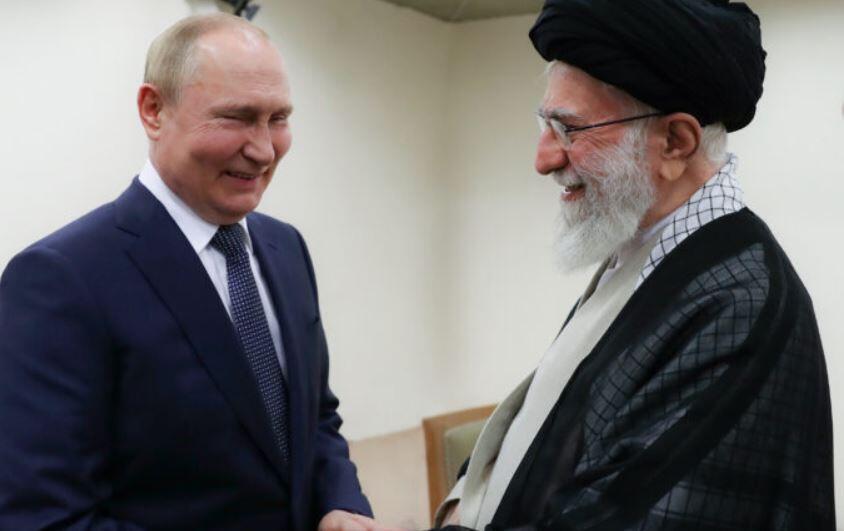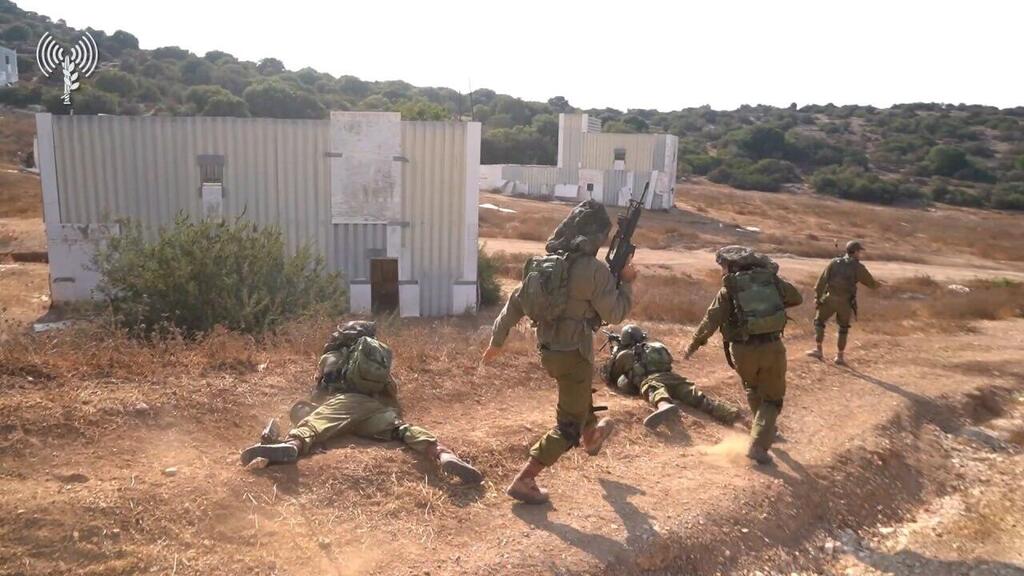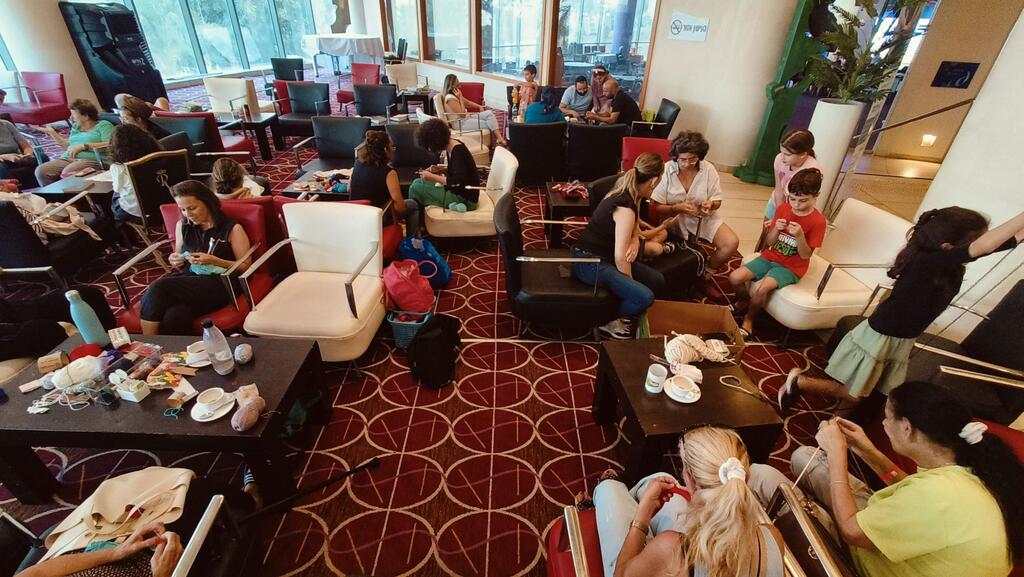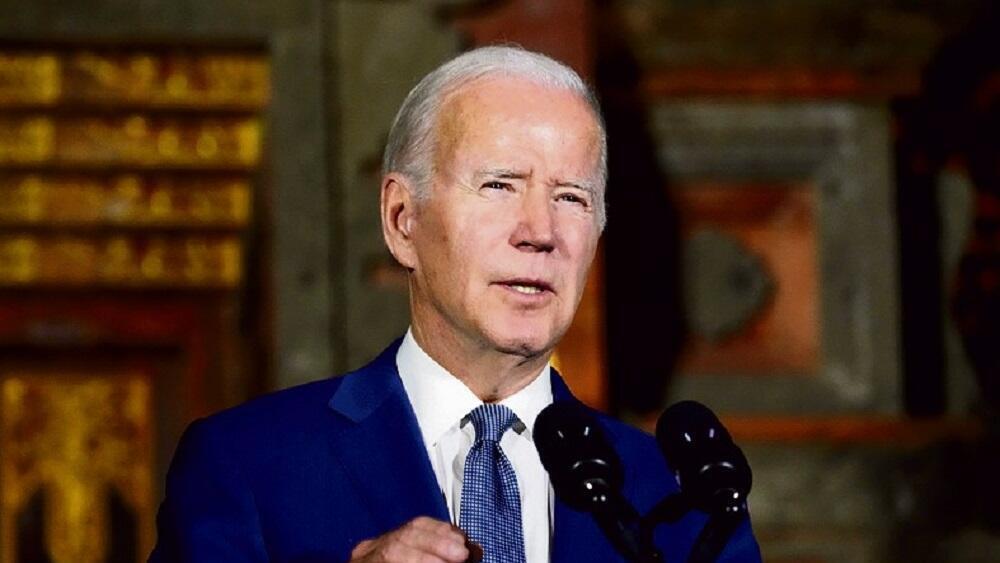Getting your Trinity Audio player ready...
Israel is now three months into one of its most consequential wars since its founding, and the effects are distinctly felt in every walk of life - Personal security, economic outlook, society at large and many more. Many of the challenges are the kind Israel has never had to face, and it's important to take a step back and analyze a snapshot of how Israel is now as opposed to how it was on October 6.
Read more:
Military objectives yet to be reached
Yes, the tactical maneuvering inside Gaza , which began in late October, is racking up more than a few checkmarks, but none of those have translated into crossing any war objectives off the list.
Chief of Staff Halevy touring the northern border
(Video: IDF Spokesperson's Unit)
The first of which is dismantling Hamas as a the governing body in Gaza and retrieving the hostages. It's worth the government first set out to "eradicate" Hamas. It's only after the collective adrenaline dropped a bit that the more realistic objective of dismantling came into the fore.
This time around, IDF has reached the kind of places in Gaza it hasn't been able to even in the years prior to 2005 when Israel left the enclave entirely, including Jabaliya and the city of Khan Younis, which is why IDF views is as a major contributing factor to the pressure that prompted Hamas to agree to the first round of hostage releases that spanned over five days a month and a half ago.
But ever since, no meaningful negotiations have taken place regarding another round of hostage-and-prisoner exchanges, Egypt's and Qatar's dedicated attempts notwithstanding. IDF believes many of the hostages are still held underground.
Another goal that remains elusive is the killing of Hamas most senior commanders. While squad and battalion commanders have met their end, the cream of the crop, namely Yahya Sinwar, Marwan Issa and Mohammed Deif are still at large.
it is estimated they're hiding underground somewhere in central or southern Gaza, which means the IDF approach is more methodical and intricate, led by their most specialized units. There's a reason IDF Chief of Staff Herzi Halevy said there are no shortcuts or magic solutions to this war. After all, this is a terror organization that had 14 years to embed itself so deeply within every aspect of everyday life in the Gaza strip.
The objective to taking military control over northern Gaza is on the verge of completion. Every day, loads of Hamas munitions are found among olive orchards and destroyed homes, and dozens of terrorists still scurry in-and-out of tunnels at will. Likelihood is that this might take over a month, seeing as Hamas terrorists either pretend to be civilians or are still hiding underground where they are harder to reach.
From the start of the ground offensive, the emphasis has been on deliberate and tactical advancement rather than the "storming Normandy" approach, and the result is the relatively low (relatively being the operative word) number of IDF fatalities, standing at around 170 thus far. Forces are proving more adept at recognizing and dismantling explosive traps as well as more efficient maneuverability to avoid ambush and evacuating the wounded.
Many reservists have come home after three months of the most intense deployment of their lifetime, but many are still there now. Officers are wary of making false promises about when they'll be able to be reunited with their families, as war dynamics eliminate predictability. Even if they are allowed to go home, it's a matter of time before they're called again, and maybe this time they'll be posted up north to face Hezbollah, or in the West Bank to deal with numerous terror cells in Jenin and Ramallah.
War has no Cyber Mondays
After tabulating every aspect of the war thus far, the price tag stands at around $60 billion. This includes the war budget itself, as well as the various forms of financial aid for every civilian that saw his income dwindle because of the conflict.
Every day costs the IDF around $272 million. Every reservist is paid $82 a day, and these payments alone have totaled $2.5 billion.
On the civilian front, reparations are already in tens of billions, but those are subsiding as the Israeli public is getting gradually acclimated to the "wartime routine". Businesses whose income have declined drastically are set to be compensated $2.7 billion for those three months.
A substantial part of the damage was obviously caused to the Kibbutzim around the strip, as entire communities were destroyed and local infrastructure burned down, and the damage is estimated at around $5.5 billion. The same is now unfolding in the north, with Hezbollah's incessant bombing campaign, where the monetary loss stands at roughly $1.6 billion.
Evacuated populations, both from the north and south, numbers about 125,000 people, and taking care of them runs a tab that's already in the billions. It seems that a return home is not the cards for many of them for at least a few months, so the tab is expected to rise.
State budget is looking at a $30 billion deficit as is, which will require both budget cuts and tax hikes to the tune of over $18 billion, which will be felt keenly in terms of quality of life and reduced services for the Israeli public at large.
Education will be confusing and erratic
We're only 4 years after the COVID-19 pandemic caught the world off-guard, and Israeli students felt the effects of that in reduced educational quality and any number of social isolation aftereffects that are still being handled, and now the war in Gaza means the educational front has come to a screeching halt. Those evacuated have suffered the most, as children have had to reacclimate to completely different environments, which brings the sort of mental challenges that some of them might be unequipped to contend with.
Many students stayed home, others have resorted to Zoom sessions and the rest went back to school. Keep in mind that many teachers have had to pause their educational careers when they were called up to reserve duty.
Overall, 48,000 children have been evacuated, with some relocating to communities safe from rockets, while others are staying in hotels along with their families. Up until many reservists were recently allowed to go home, some 2,500 teachers have served in Gaza and the northern border.
This brought about a bizarre situation where teachers were forced to teach in areas they're untrained for. Bible teachers had to teach math, for example. Parents have also stepped in, volunteering in lieu of recruited teachers.
Evacuated communities are on the brink
With hotels jampacked with evacuated families, these places have become pressure cookers and troubles continue to mount, with many people, forced to live in extremely uncomfortable situations, feeling increasingly agitated. It's become so bad, the idea of entire communities dismantling altogether is firmly within the realm of possibility.
Gaza border region residents have had their lives turned upside down, and that's if they were lucky enough to escape the Hamas onslaught to begin with. Forced to huddle in hotel rooms with small children has become incredibly taxing, and the mental ramifications are likely to be felt for a long time to come. Their routine is vastly different than before, children learning in makeshift schools and parents coping with unparalleled stress.
Authorities are now keenly aware of the possibility of entire communities falling apart, as many would choose not to come back home even after the dogs of war have finally ceased their barking. Levels of emigration from the southern Kibbutzim could prove unprecedented, which could potentially lead to some Kibbutzim disappearing altogether.
A somewhat similar outlook can be seen in the Galilee region in northern Israel, where tens of thousands are now in hotels, and some having already realized they're not going to return for at least a few months. They're adapting to new lives, with unfamiliar education systems and alternate means of employment. Whether they'll ever come back is anyone's guess.
Next stop - International pariah?
October 7 has brought about an altered geopolitical scene Israel is still getting acclimated to. For one, the distinction between Israel's true friends and politically-convenient ones is becoming pronounced. Among true friends, first and foremost, is obviously the United States of America. Then you have Germany, who have really stepped up, the United Kingdom and France.
Russia, on the other hand, has been an incredible disappointment, as soon as things began getting dicey, their pro-Hamas stance became increasingly evident. The dissonance between their own unprovoked bombardment of Ukraine and Israel's self-defense campaign in Gaza is quite overwhelming.
And then you've got China that have been somewhat understanding of Hamas, with their foreign minister meeting the Iranian counterpart and expressing support for the Palestinians while Israel was still counting their dead.
But back to the United States. Their support has been clear from day one. Other than President Biden's own pro-Zionist inclinations, there's also the global divide that's formulating between the western world and the autocratic regimes of China, Russia, Iran and Iranian middle east proxies.
The events of October 7 serve as an opportunity for the US to strike at Hamas and relay a message to the signatories of the Abraham Accords, that aligning with the US always proves fruitful. That's why the US is giving Israel incredible military assistance, but nothing comes for free.
In return, the Americans are looking for a streamlined operation that will put emphasis on reducing civilian casualties in order to persuade Arab states their intentions are pure. That also means the US will likely convey a clear message to Israel that the two-state solution is on the table, Netanyahu's radical right wing coalition notwithstanding.
And then you have France, Germany and the UK, all of which are dealing with internal pressure and street level demonstrations opposing Israel, organized by radical Islam elements.
Thus far, the US has halted all UN Security Council resolutions calling for a ceasefire, so they're the ones who will decide how much longer we have.
The more time passes since the massacre, the more the world is losing patience with us. Radical left wing organizations along with Islamist groups are leading a viral social media campaign decrying the "genocide" in Gaza, prompting huge waves of antisemitism in every continent save Antarctica.
Of course, Russia and China aren't blind to this, and they're ceasing this chance to weaken the west. This is very convenient for Putin, as his bombing of Ukrainian civilians is now a fading memory for most, even as it's still going on.
5 View gallery


Russia and Iran on the opposing side of the ideological world war
(Photo: Creative Commons BY)
The most recent issue is South Africa's magically-appearing conscience, wanting to take Israel to the Hague. The remedy is simple - Allow humanitarian aid to flow into Gaza undisturbed and condemn Israel's own extreme right every time they utter something unacceptable.
Wild west in the Middle East
Terrorists always aim to spread fear. That's the whole point. The massacre of October 7 has greatly affected the sense of personal security among Israelis, which became evident when the number of Israelis asking for weapons permits skyrocketed.
National Security Minister, Itamar Ben-Gvir, has laxed requirements for obtaining weapons, and 277,874 people have now asked for a permit, with 44,658 being granted and 68,053 pending approval. For comparison - the total number of Israelis seeking a permit all throughout 2022 was 42, 170.









